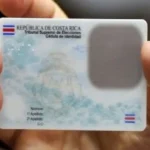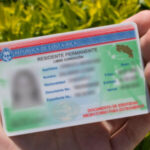How often do I need to renew Costa Rica residency? FAQs

Costa Rica has become a haven for expatriates, with its lush landscapes, vibrant culture, and welcoming environment making it an ideal destination for those seeking a better quality of life. As of recent trends, thousands of individuals and families have made Costa Rica their home, drawn by its stable political climate and high-quality healthcare system.
For those holding residency in Costa Rica, understanding the renewal process is crucial. The country offers various residency categories, each with its own renewal period, typically ranging from 1 to 5 years. Whether you're a retiree, investor, or married to a Costa Rican citizen, maintaining your legal status is essential.
We will guide you through the renewal process, requirements, and benefits of maintaining your residency status, ensuring you stay informed and compliant with Costa Rican regulations.
Understanding Costa Rica Residency Types

For those looking to make Costa Rica their home, several residency categories are available. Costa Rica offers a variety of residency options to suit the needs and circumstances of applicants.
Temporary Residency Categories
Temporary residency in Costa Rica includes categories such as Pensionado for retirees, Rentista for individuals with a stable income, and Inversionista for investors. Each category has specific requirements, such as minimum income or investment thresholds.
Permanent Residency Status
Permanent residency is available after maintaining temporary residency for a certain period, typically three years. This status offers more stability and less frequent renewal requirements. It's a viable option for those who wish to integrate into Costa Rican society long-term.
How Often Do I Need to Renew Costa Rica Residency?
Understanding how often to renew your Costa Rica residency is essential for maintaining your legal status in the country. The renewal frequency depends on the type of residency you hold, and it's crucial to be aware of the specific requirements for your category.
Renewal Periods for Pensionado and Rentista
For Pensionado (retiree) and Rentista (person with stable income) categories, residency must typically be renewed every 2 years. This renewal process requires proof that you continue to meet the income requirements set by the Costa Rica immigration authorities. It's essential to plan ahead and start the renewal process at least 90 days before your current residency expires to avoid any complications.
Renewal Periods for Investor and Marriage-Based Residency
Investor residency (Inversionista) also requires renewal every 2 years, with verification that your investment of at least $200,000 USD remains active in Costa Rica. For those who obtained residency through marriage, the initial renewal period is every 2 years for the first three years. After this period, you may qualify for permanent residency status, which offers more stability.
Permanent Residency Renewal Timeline
Permanent residency in Costa Rica offers more stability, with renewals typically required every 2-5 years, depending on when you obtained your status. The renewal timeline is tied to your DIMEX card (Documento de Identidad Migratorio para Extranjeros), which serves as your official residency identification. Ensuring you renew your residency on time is vital to avoid penalties or loss of status.
The DIMEX Card: Your Residency Identification
The DIMEX card serves as a vital identification document for foreigners residing in Costa Rica. It is officially known as the "Documento de Identidad Migratorio para Extranjeros," and it is issued to those with approved residency.
What is a DIMEX Card?
A DIMEX card is a government-issued ID that contains personal information, a photograph, and fingerprints. It indicates the holder's residency category and expiration date. This card is essential for various aspects of life in Costa Rica, including opening bank accounts, accessing healthcare services, and conducting official business. It serves as proof of legal status in the country.
DIMEX Card Validity and Expiration
The validity period of a DIMEX card corresponds to the residency renewal timeline. For temporary residents, the card is typically valid for 2 years initially, followed by 3-year validity periods for subsequent renewals. Permanent residents receive DIMEX cards with longer validity periods, usually ranging from 2 to 5 years, reflecting their more stable status. It is crucial to track the expiration date on the DIMEX card, as it indicates when to begin the renewal process for both the card and residency status. If you lose your DIMEX card, you should apply for a duplicate at the immigration offices with the required documentation and fees, as explained on our page about losing your Costa Rican DIMEX.
Essential Documents for Costa Rica Residency Renewal

To successfully renew your Costa Rica residency, it's essential to understand the required documents. The renewal process involves gathering various documents, which can be categorized into standard requirements applicable to all residency types and specific documents based on your residency category.
Standard Required Documents for All Categories
When applying for residency renewal in Costa Rica, all applicants must provide certain standard documents. These include a valid passport, your current DIMEX card (even if it's expired), proof of enrollment in the Costa Rican social security system (CAJA), and receipts showing payment of all required government fees. Additionally, you'll need to provide typed information about your parents as they appear on your birth certificate and your current contact information in Costa Rica. The "Informed Consent" document regarding the use of your personal data must also be completed and signed in front of the immigration official during your appointment.
Category-Specific Documentation Requirements
Beyond the standard documents, the type of residency you're renewing dictates additional documentation. For instance, Pensionado (retiree) applicants must provide recent proof of continued pension income of at least $1,000 USD monthly. Rentista applicants need to demonstrate continued income of $2,500 USD monthly. Investor residency renewals require documentation proving your investment of at least $150,000 USD remains active in Costa Rica, including proof that all taxes on those assets are current. Marriage-based residency renewals need proof of the ongoing marriage, either through a recent marriage certificate or verification from the Costa Rican Civil Registry. Having all documents properly organized will streamline your renewal application process.
By understanding and preparing these essential documents, you can ensure a smoother Costa Rica residency renewal process. It's crucial to verify the specific requirements for your residency category to avoid any complications or delays in your application.
Step-by-Step Costa Rica Residency Renewal Process
Costa Rica residency renewal is a multi-step process that requires careful planning and timely action. To maintain your legal status in Costa Rica, it's crucial to understand and follow the renewal process accurately.
When to Start the Renewal Process
The renewal process should begin 90 days before the expiry date on your current DIMEX card. This timeframe allows for the processing of your application and helps avoid any gaps in your legal residency status.
Where to Submit Your Renewal Application
Applications can be submitted at various locations depending on your residency category. Options include the General Directorate of Migration and Immigration (DGME) offices, participating Bank of Costa Rica (BCR) branches, or Correos de Costa Rica (post office).
Different residency categories have specific submission locations. For instance, Pensionados and Rentistas under age 65 can apply at participating BCR branches or post offices, while Inversionistas must apply at DGME offices.
Special Situations in the Renewal Process
When renewing Costa Rica residency, certain situations may require special attention. The renewal process typically follows a standard procedure, but exceptions can arise that necessitate additional steps or documentation.
Renewing an Expired Residency
If your Costa Rica residency has expired, the renewal process can become more complicated. The complexity depends on how long your residency has been expired. If it's been less than three months since your DIMEX card expired, you can still renew through the standard process without penalties.
For residencies expired between three months and one year, you'll need to submit a notarized justification letter explaining the delay. In such cases, renewal can only be done at DGME (immigration) offices, not at BCR branches or post offices.
If your residency has been expired for over a year, the process becomes even more complex. You'll need both a notarized justification letter and a new criminal background check from your home country, properly authenticated and translated.
Renewal Process for Seniors
Seniors aged 65 and older enjoy significant advantages in the renewal process. They don't need appointments at DGME offices and can often receive same-day service. Elderly residents may receive either an immediate digital DIMEX with a QR code that functions as temporary identification or, in some locations, the actual plastic DIMEX card on the same day.
This simplified process for seniors recognizes the potential difficulties older residents might face with complex bureaucratic procedures and multiple visits.
Professional Assistance with Residency Renewal
Navigating the complexities of Costa Rica residency renewal can be streamlined with professional assistance. Working with immigration experts can simplify the renewal process by providing guidance on document preparation, timeline management, and eligibility criteria.
Immigration experts have in-depth knowledge of the constantly changing requirements, procedures, and nuances of Costa Rican immigration law. This expertise is particularly valuable for those unfamiliar with the legal system or who don't speak fluent Spanish.
Benefits of Working with Immigration Experts
The benefits of working with immigration experts include saving significant time and stress by ensuring all documents are properly prepared and submitted correctly the first time. Experts can also represent you at appointments and address any complications that might arise during your renewal process.
For more information on maintaining your residency status, you can learn about the steps to take after getting Costa Rica.
Costa Rica Immigration Services
Services like JAROS CR specialize in guiding foreigners through the residency renewal process with personalized support. Their expertise can help navigate complex requirements and procedures, making the renewal process much smoother.
By contacting immigration services, you can ensure that your residency renewal is handled efficiently and effectively, giving you peace of mind.
Benefits of Maintaining Your Costa Rica Residency
By keeping your Costa Rica residency active, you can unlock a range of benefits that improve your quality of life in this beautiful Central American country. Maintaining residency status offers numerous advantages that can significantly enhance your overall well-being.
Access to Healthcare and Social Security
One of the most significant benefits is access to Costa Rica's universal healthcare system (CAJA), which provides comprehensive medical care at a fraction of the cost in countries like the United States. As a legal resident, you're entitled to social security benefits, including retirement pensions, disability coverage, and maternity benefits, providing financial security for you and your family.
Path to Permanent Residency and Citizenship
Continuous residency is the pathway to permanent residency status, which can be obtained after maintaining temporary residency for three years and offers more stability with less frequent renewal requirements. Eventually, this can lead to Costa Rican citizenship, granting you voting rights and a Costa Rican passport with visa-free travel to many countries.
Conclusion
As we've explored, understanding the renewal process for Costa Rica residency is essential for a seamless experience. The frequency of renewal depends on your specific residency category, with temporary residencies typically requiring renewal every 1-2 years and permanent residency every 2-5 years. To avoid any complications, it's recommended to start the renewal process at least 90 days before your DIMEX card expires. By staying informed and prepared, you can maintain your legal status and continue to enjoy the benefits of living in this beautiful country, including access to healthcare and social security. For more information on whether residency in Costa Rica is worth it, you can visit this page.


